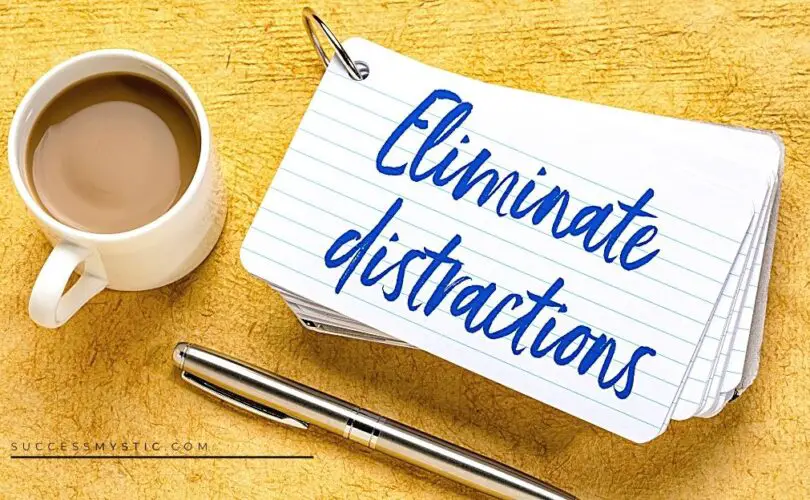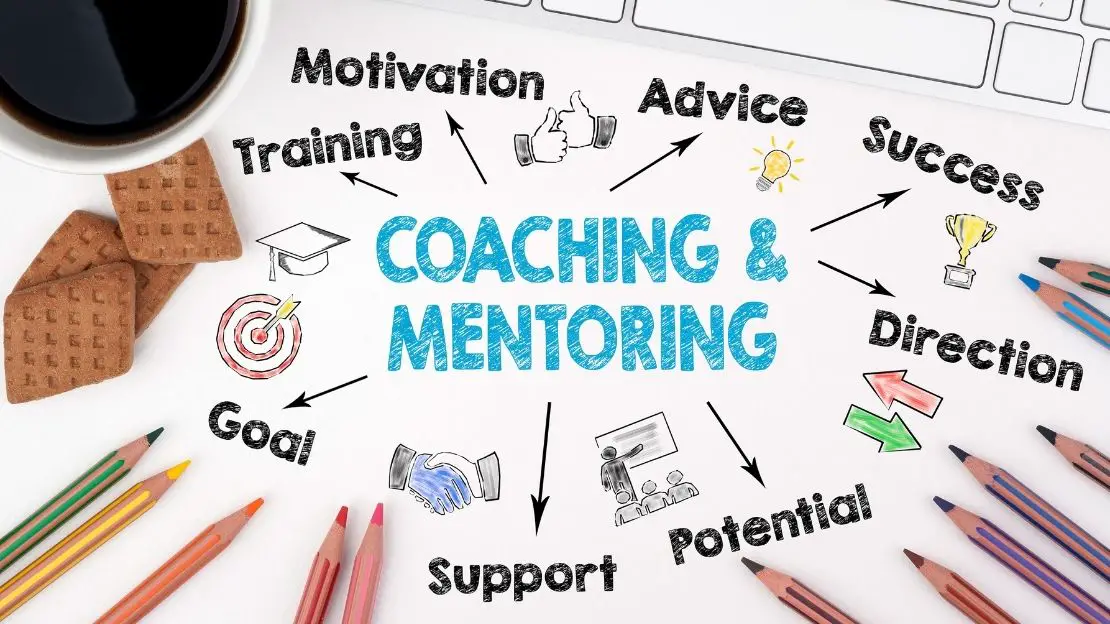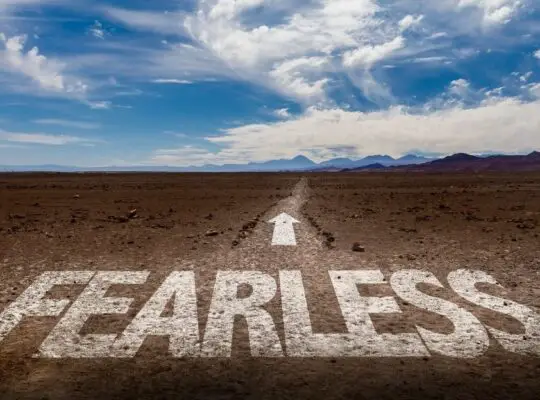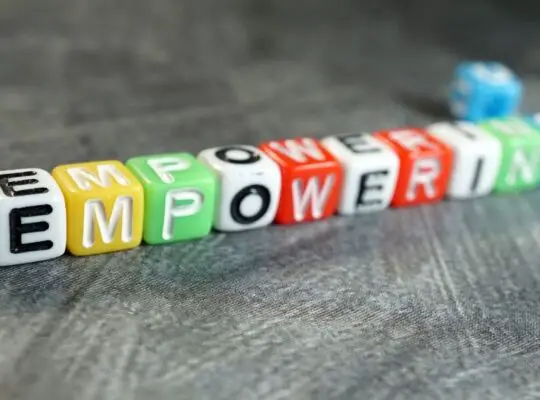Americans spend, on average, spends 46 hours of their week at work. Now, ask yourself if all of the hours you spend at work are productive ones? If you’re being completely honest, then you know that you spend a whole lot of time getting distracted and wasting time.
Then, you end up under pressure to deliver your work. It really doesn’t matter whether you work for yourself or for a corporation, increasing productivity just makes good business sense.
You’re at your desk. Your eyes focused on the screen in front of you. Your phone lights up. You tear your eyes off of one screen to check another and get caught up in social media for a few minutes.
While you’re on your phone, you may as well check for breaking news and maybe text a friend or two. Then, you turn back to the original screen and get back to work. Except, you broke your focus so, it’s going to take you some time to get back into the groove.
Your day is filled with distractions just like this, and while it’s impossible to rid yourself of them entirely, you can absolutely limit their existence in your workplace.
Distractions Are Costly
You probably haven’t spent much time adding up the minutes. All of those little distractions add up to a major drain on your time. Some experts suggest it takes as long as 30 minutes to regain your focus after you distract yourself.
So, what you think of five minutes to watch a video your friend tagged you in, may actually add up to 35 minutes of time-wasting. Now, how often does that happen during your day? Those minutes quickly turn into half of your working day. Just think about how much of an impact that will have on your total output.
You may want to consider finding a way to remind yourself of the ultimate cost of distractions to help you avoid them in the future. Luckily, there are more ways than just that to help you purge distractions from your working life.
Of course, you can apply some of these to your personal life as well. We all know how easy it is to distract ourselves away from the pile of laundry in the corner.
A Minimalist Approach
By now, you’re probably tired of hearing about minimalism. However, there’s something in that approach that can help you avoid distractions. Now, you don’t need to go home or to the office and throw away all of your things, but you do need to create limits. Limiting the number of items that sit in your view can help you avoid distractions and lengthen your periods of focus.
The basic idea behind minimalism is that stuff is distracting so, do without it. For example, a home with a large backyard will require a lot of hours to maintain it. Whether you use your own time or pay for someone else’s, in which case it comes at a great cost. That leaves you needing to earn more money to pay for more things and takes away from the time you could be spending with your loved ones.
Ultimately, the stuff is distracting you from what really matters in life. At work, that idea can be translated. All you need to do is remove the excess from your vision to make your day run more smoothly.
You can declutter your computer, remove all sources of temptation or at least lock them down. You can also clear your desk from distractions and put anything that might distract you in a drawer. You may want to lock that drawer, but if you have willpower then you can feel free to leave it as is. These little changes can translate into big improvements, especially when it comes to your productivity.
As soon as you walk into work, you should turn your mobile phone off or turn airplane mode on. Put it in a drawer and forget that it exists. You may not find yourself constantly under text attack. However, many of us find the presence of a phone distracting.
Why?
In times of frustration, we immediately turn to it as a source of distraction. It helps us distance ourselves from the uncomfortable emotion that we are experiencing when we hit a roadblock at work (or in life). Think of it as a craving that you have to resist. In fact, that’s how you should view all distractions.
16 Biggest Greatest Distractions
Let’s take a look at the biggest distractions that we face in life and how best to mitigate their influence on our productivity.
1| Personal Technology
The lines between sources of communication are heavily blurred now. Thanks to the invention of smartphones and smartwatches. Our personal technology also serves us in a work capacity. For, we now get emails, calls, and texts regarding work on those personal devices.
Once, workplaces were a strict no personal technology zone, but that’s not the case anymore. With that, our ability to be distracted by our phones has rocketed. Yes, you may be answering a work email on your phone one minute and the next, you’re replying to a comment on your last Instagram post.
It’s difficult for employers to enforce technology rules and even when they attempt to, well, we find a way around them, don’t we? You should start by setting boundaries – is any work-related correspondence important enough to disturb you out of hours? If possible, refuse to engage with work-related contact outside of working hours. You can remove this from your phone and make life easier when you turn your phone off and get your head down to work.
Now, if you know that airplane mode or silent isn’t enough to keep you away from your phone. Then, you can go to more extreme lengths. There are apps available that will block access to certain apps between certain times.
When you try to open that app during those hours, you’ll get a blank screen. Though, some apps offer you a motivational quote, too. You might need to use the app forever or, you may find that using it solidly for a specific space of time will help you increase your self-control enough to resist all temptation.
2| Emails
One of the biggest time-wasters on the planet… emails. It’s technically work so, it’s something that we often fill our time with as to avoid doing other more important tasks. Yet, what email really requires an immediate response? We have a way for you to handle this, too. Firstly, set a time that you check emails. It may be that once a day is sufficient, but generally, twice a day is a good rule.
Let everyone know that you check your email at these specific times and it’s at that point that you respond to them. Give yourself a set time to read and respond to all emails. This doesn’t just manage your own time, it helps you manage the expectations of the people you work with. Ideally, you can choose to do this when you know your productivity is at its lowest. Additionally, once you respond to an email, either archive it or move it to the trash. There’s nothing more daunting than a giant inbox.
3| Social Media
This is a distraction that wastes so much time. It’s so easy to open one platform, browse, open another, then go right back to the next one. It’s a time waster. More than that, we know that’s what it is, and we often log on for the express purpose of killing time. There is rarely anything on social media that is so important you can’t wait until the end of the working day to find out about it.
4| Instant Messages
Often, a workplace uses an instant messaging platform so that people can easily get in touch with their colleagues. That’s great, it’s handy to send a message and know that you can have a response almost immediately. Unfortunately, it can also serve as a major distraction. You should resist using it for anything other than queries that are quick and easy. Don’t get drawn into full-blown conversations.
5| Internet Browsing
Once upon a time, workstations didn’t allow internet browsing at all. Now, though, the internet is necessary for our jobs. You may need a browser to search for certain things. There is software available that you can use to block yourself from viewing certain content.
6| Phone Calls
Most workplaces drill into their workers that they should answer their work phone within three rings. The customer or client on the other end of the phone needs to know that they are important to you. There’s nothing worse than breaking your concentration to answer the phone. What you can do instead is get your colleagues to take turns answering calls. Create a schedule and assign everyone a specific time. If you have the power of instant messaging, that can be used to alert colleagues to calls. As far as your personal phone, it’s supposed to be off or in airplane mode, remember?
7| Your Working Environment
In any workplace, there are a variety of distractions to deal with. We have to deal with loud colleagues, the smell of food, and just general noise. Some people can easily shut these noises out, but for others, it’s not quite as simple. If you’re allowed to listen to music, then you have an excellent way to shut the world out. White noise is also a good option. If you don’t like listening to anything, consider wearing some earphones just to prevent others from approaching you. It’s a sneaky trick, but an efficient one.
8| Procrastination
Your to-do list should be manageable. If it’s too long you will look out for ways to distract yourself. When you make your list, do it in order of priority and tackle the biggest tasks first. If you are always handling urgent tasks that were unplanned, then you’ll need to find out why this keeps happening. Presumably, you are a member of a team.
9| People
What could be more distracting than people? Yes, the workmate that stops by for a chat mid-morning, the cubicle neighbor who needs to vent about life… it all adds up. When you are dealing with tasks that need your total focus, either create a do not disturb sign or find a private place to work. It’s easy if you have an office, you can simply let everyone know you’re unavailable and close the door behind you. It’s not quite as simple for people who work in an open plan area.
10| Personal Deadlines
If you want to avoid distractions, then set yourself deadlines. Every task can be given a specific amount of time and you will find that when you are working to deadlines, you don’t have time to even consider indulging a distraction.
11| Your Workspace
What does your desk look like? Is it cluttered, with paperwork and things you don’t need? Clear it all away. Assign every single item a home and ensure that when it’s not in active use that it’s in its home. Don’t be afraid to throw away what you really don’t need. Just ensure important paperwork is filed correctly.
12| Regular Breaks
Yes, we are telling you all of the ways you can avoid wasting five minutes and now we’re telling you to have regular breaks. Stick with us. When you take a deliberate break, you are doing so to recharge your batteries. It means that you won’t feel as compelled to indulge those other distractions.
You aren’t a machine; your brain needs a moment. That doesn’t mean you should grab your phone and log on during your breaks. Try going for a walk, grabbing a hot beverage or a glass of water or even sitting down with a book. The Pomodoro technique is the ultimate in deliberate breaks (ref.).
13| A Toxic Workplace
This shouldn’t come as a surprise to anyone. A toxic workplace can have a detrimental effect on everyone involved. Not only does it remove the drive to produce, but it is also emotionally and physically draining.
Ultimately, it’s distracting. It’s impacting the well-being and productivity of everyone in the workplace, and you’re more likely to waste time complaining about the source of that toxicity as well. So, what is the source of the toxicity and how can it be mitigated? It could be the temperature that’s fueling bad attitudes. It might be air quality, the manager, a colleague or the work tools. Address the issue to reduce toxicity.
14| Multitasking
You brag about how well you do it, but it’s really just a distraction that is wasting your time and decreasing your productivity and performance. When you multitask, you are forced to change your attention from one task to another (and possibly another). How can you do something well if you are doing two other things at the same time? You can’t. In fact, studies have found that only 2% of people can efficiently multitask (ref.). It’s safe to assume that you are probably not in that bracket so, just don’t try! It leads to burn out and is just another distraction.
To avoid the temptation of multitasking, you should prioritize your tasks. Additionally, be firm in saying no. If you don’t have time to take on more work, be clear and say so. Don’t be afraid to delegate tasks when you have too much on your plate. It’s not a sign of weakness, it’s a sign of strength.
15| Negative Self-Talk
It doesn’t matter how long you have been doing your job or how great you are at it. At some point, you will run into a brick wall. That’s okay – it happens to all of us. You may have two points to make, but you are struggling to connect them for a big presentation. It really doesn’t matter what it is – whenever you run into those issues you will likely find that negative self-talk creep in.
You start to question whether you had the right idea in the first place or, start calling yourself stupid for thinking it was a good idea. You might think that negative self-talk isn’t a distraction. In and of itself it isn’t; however, the distraction is the emotion that the self-talk creates. A chronic problem with negative self-talk can lead to profound negative emotions like guilt and shame. There is your distraction.
No one likes to deal with uncomfortable emotions, which is why we impulsively push the emotion away. We indulge distractions like sugar, social media, eating junk food, talking to a co-worker. Ultimately, that negative self-talk might just be the leading cause of procrastination and distraction.
The key now is to correct any negative self-talk as you feel it happening. You will eventually get to a point where you can stop it from happening at all. To get started, you just need to rephrase the negative self-talk. If you start to think your ideas are bad, reframe it. Just because you’re stuck now doesn’t mean you won’t resolve it. You can also start your day with positive affirmations to get yourself off on the right foot.
16| Me, Myself, and I
Yes, you are your own worst enemy. You know that it requires plenty of physical and mental energy to manage your priorities. Yet, you let yourself get drawn into every distraction that wanders by. It’s up to you to sleep enough to power yourself through the day. It’s up to you to ensure you are fully hydrated, so you are fully focused and with it all day. It’s your responsibility to exercise sufficiently and to eat the right foods. So, how are you making distractions more likely for yourself?
Consider a wallpaper for your computer that will inspire you. You can do the same for your phone, tablet, and even your home computer.
Final Thoughts
Look, everyone on the planet deals with some form of distraction, at home and in the workplace. The only thing that distractions are good for is a sharp increase in stress and a decrease in productivity. So, think about what causes the majority of your distractions. These days, technology is likely pretty high on the list for everyone.
So, it’s time to assess just how often you spend on your devices, whether it’s for emails, social media or game playing. Set boundaries and don’t be afraid to stick to them. Alert people to the fact that you will be unavailable as you need extreme focus. Don’t feel bad about managing your day and increasing your focus and productivity.
You go to work to do a job and you take a paycheck home for it. It doesn’t matter whether your salary is performance based or not, putting in a productive day at work means walking away with a sense of pride. It also means you will make a name for yourself in the industry and others will come calling.
You expand your opportunities when you focus on the task at hand and increase your productivity. Additionally, these are things that you can put into place in your own home, whether you are a parent who works or one who stays home with the children.
People demand your time and you have to learn how to manage yours more appropriately. Again, learn how to say no. What demands are appropriate and which ones are people pushing you too hard? It’s important to understand how many tasks you do that are distractions, as well as the typical distractions that tear you away from serving your values.
So, what is it that distracts you from your most important tasks? What fuels those distractions? Are you just easily distracted and a typical procrastinator?
Or, is there something deeper going on? Are distractions more tempting to you when you run into a difficult task or hit a brick wall?
You’re not alone, but luckily, you can overcome these distractions using some of the helpful hints and tips we’ve provided for you above.







